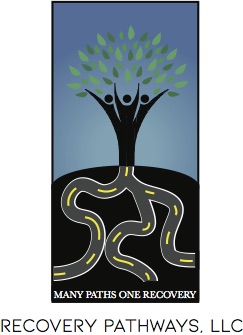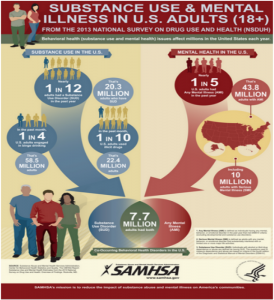Message to families
Our primary message to those who know or suspect a loved one is struggling with mental health or substance use disorders is: get help now. Let us help you or your loved one overcome the social stigma of addiction and mental illness. We have learned the hard way that any person in any family, regardless of how they live, where they live, their religious affiliation, or social/economic status, may be affected by substance use and mental health disorders. These individuals will not get better by themselves, no matter what they believe or promise. And you cannot love someone out of addiction or mental health issues.
Recovery Pathways Treatment Guidelines are evidenced based and supported by Substance Abuse and Mental Health Services Administration (SAMHSA), The American Osteopathic Academy of Addiction Medicine (AOAAM) and The American Society of Addiction Medicine (ASAM), and The Joint Commission.
What is Addiction?
The Definition of Addiction is a disease; a compulsive physiological need for use of any habit-forming substance in which the body adapts to the substance and gradually increases the required amount needed to reproduce the effects originally produced in smaller doses. Some examples of commonly abused substances include nicotine, alcohol, opioids, benzodiazepines, marijuana, cocaine, amphetamines, etc.
Addiction to any substance is a dangerous condition that is exceedingly difficult to rehabilitate from. Addiction is recognized by the American Medical Association as a disease. In diagnosed cases of addiction, the person will crave the substance in the same manner as someone starving from food or water. Individuals will typically continue their consumption regardless of the damage it causes to their health, relationships, or their finances, as the compulsion is uncontrollable.
Like many other diseases, the disposition for addiction is commonly passed genetically. While this genetic link has been scientifically determined, an individual’s lifestyle, environment, stress level, and the availability of illicit/narcotic substances also play a significant role in the development of this chronic disease. Fortunately, just because someone is “at risk” for the disease of addiction does not mean he or she will develop it. Understanding your risk level, however, can be key to protecting yourself and getting the help you need as early as possible.
What is Mental Illness?
As defined by National Alliance on Mental Illness (NAMI), mental illness is a medical condition that disrupts a person’s thinking, feeling, mood, ability to relate to others and daily functioning. Just as diabetes is a disorder of the pancreas, mental illnesses are medical conditions that often result in a diminished capacity for coping with the ordinary demands of life.
Mental illnesses can affect persons of any age, race, religion or income. Mental illnesses are not the result of personal weakness, lack of character or poor upbringing. Mental illnesses are treatable. Most people diagnosed with a serious mental illness can experience relief from their symptoms by actively participating in an individual treatment plan.
Serious mental illnesses include major depression, schizophrenia, bipolar disorder, obsessive compulsive disorder (OCD), panic disorder, posttraumatic stress disorder (PTSD) and borderline personality disorder. The good news about mental illness is that recovery is possible.
Co-Occurring Disorders
At Recovery Pathways, LLC, we recognize that mental health and substance use disorders are often interrelated and require individualized treatment plans to address all aspects of these disorders. Use of evidenced based practices allows us to assist each individual with a comprehensive treatment approach to help them manage symptoms of substance use mental health disorders.
Can substance use and mental health disorders be treated successfully? YES! Substance use and mental health disorders are treatable diseases; they are not a life sentence! Like other chronic diseases, substance use and mental health disorders can be managed successfully. Treatment enables people to counteract the disruptive effects substance use and mental health disorders have on the brain and behavior, and regain control of their lives.Discoveries in the science of substance use and mental health disorders have led to advances in treatment that help people stop struggling and resume their productive lives.
What to Do If You Have a Problem with Drugs

